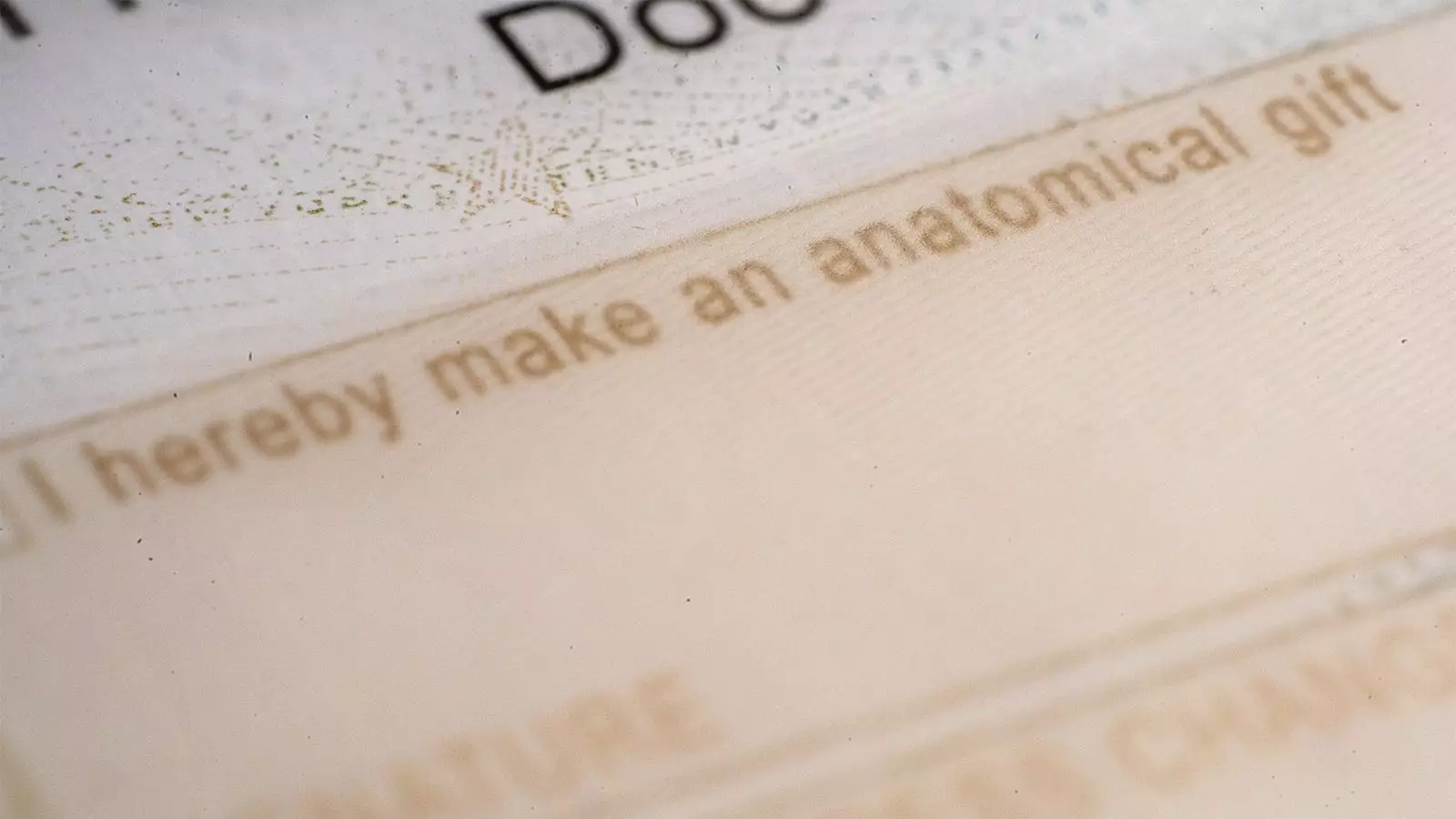Organ donation plays a pivotal role in saving lives, yet recent troubling incidents have severely undermined public trust in the transplantation system. The dramatic rise in organ donor registration withdrawals in the wake of the Kentucky case, where a man mistakenly declared dead was found to be alive, highlights a critical issue: public perception and trust are paramount to the success of organ donation initiatives.
In 2021, a case emerged from Kentucky where a man, initially believed to be dead, woke up en route to an organ retrieval operation. While the specifics of the incident remain undefined, its reverberations are undeniable. With the potential for organ retrieval dashed because the man’s life was not actually lost, hospitals and transplant authorities are now facing immense scrutiny. The fallout includes a significant decline in organ donor registration as fear and skepticism creep into the public consciousness. Dorrie Dils from the Association of Organ Procurement Organizations stated, “Organ donation is based on public trust,” emphasizing how essential that trust is to the functioning of the organ donation system.
The mistakes made in this singular case can taint the entire perception of organ donation practices, leading to a steep decline in individuals willing to donate. While one might argue that any system can have its flaws, the emphasis placed on transparent and ethical practices can’t be overstated in a field where lives hang in the balance.
The repercussions of the Kentucky situation are evident in hard statistics. According to Donate Life America, the week following the media coverage saw an astonishing increase in the number of individuals removing themselves from organ donation registries, with an average of 170 people opting out daily—ten times the regular rate. This trend reveals a troubling psychological response among the public, where a singular event can lead to a widespread reluctance to participate in a system designed to save lives.
States are reporting similar trends. For instance, the once-modest number of removal requests faced a staggering spike in Michigan, where Dils’ organization received 57 inquiries in just one week, starkly contrasting their typical caseload. This reflects a growing unease not only about specific practices but the overall integrity of the system as a whole.
The ramifications of the Kentucky case aren’t confined to the United States; they resonate across the globe. In France, where organ donation operates under a presumed consent policy—meaning residents are considered donors unless they explicitly opt out—the public reaction has been similarly distressing. Following the news from Kentucky, refusals to donate surged from around 100 to 1,000 registrations per day. The French Biomedicine Agency has reported this significant rise as a stark reflection of anxiety that could have detrimental effects on organ donation rates nationwide. Dr. Régis Bronchard highlighted that such a spike indicates “anxiety” and “incomprehension” among the general populace.
These instances underscore how information—often unverified—can lead to widespread panic, fundamentally altering citizens’ willingness to participate in life-saving measures.
At the heart of the organ donor system lies the critical process of declaring death. Medical professionals must accurately distinguish between two types of death: cardiac and brain death. Each type requires stringent medical evaluations to ensure that the declaration is beyond doubt. While operational protocols are designed to prevent erroneous declarations, the system relies heavily on medical ethics and the rigorous application of tests.
Experts like Dr. Daniel Sulmasy advocate for enhanced testing protocols, particularly as variations in practices across hospitals can lead to inconsistencies. The development of standardized, thorough, and transparent testing could foster greater trust among citizens, ensuring that every precaution is taken to confirm that a person is indeed deceased before any organ donation process is commenced.
The organ donation system stands at a crossroads, where urgency and precision are paramount. To navigate the fallout from these incidents, transparent investigations and proactive communication strategies must be instituted. Only through rebuilding public faith—through demonstrable changes initiated by the medical community—can organ donation figures return to their sustainable levels.
Ultimately, the public must be reassured that every safeguard is in place to protect their loved ones, ensuring that no one is mistreated in circumstances surrounding organ donation. As the debate unfolds, the focus should remain on rebuilding the essential trust that is foundational to the continuity and success of organ transplantation.


Leave a Reply